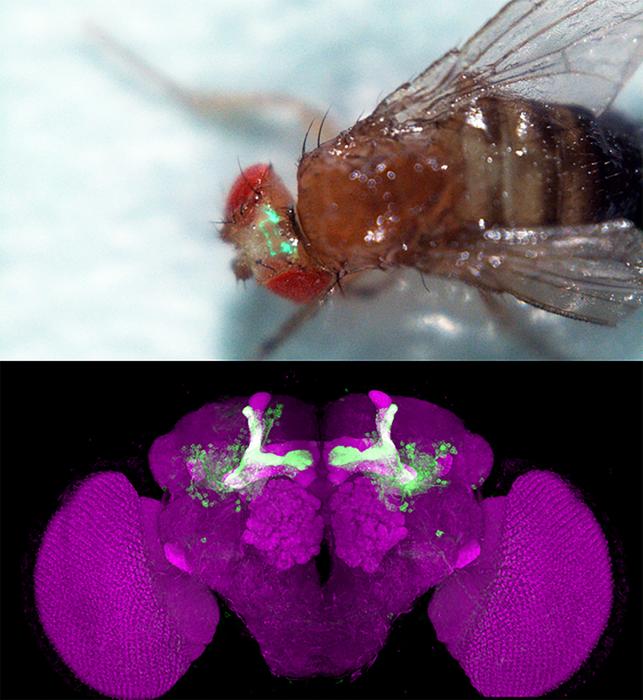Thermosensation is critical for the survival of animals, but the mechanisms by which this is modulated by nutritional status remain unclear; here, behavioral and live brain imaging studies reveal why food-sated fruit flies prefer to stay at relatively higher temperatures compared to hungry flies.

Credit: Meng-Hsuan Chiang & Chia-Lin Wu, Chiang M-H et al., 2023, PLOS Biology, CC-BY 4.0 (https://creativecommons.org/licenses/by/4.0/)
Thermosensation is critical for the survival of animals, but the mechanisms by which this is modulated by nutritional status remain unclear; here, behavioral and live brain imaging studies reveal why food-sated fruit flies prefer to stay at relatively higher temperatures compared to hungry flies.
#####
In your coverage, please use this URL to provide access to the freely available paper in PLOS Biology: http://journals.plos.org/plosbiology/article?id=10.1371/journal.pbio.3002332
Article Title: Independent insulin signaling modulators govern hot avoidance under different feeding states
Author Countries: Taiwan
Funding: This work was supported by grants from the National Science and Technology Council (112-2311-B-182-002-MY3 and 109-2326-B-182-001-MY3) to C-LW, Chang Gung Memorial Hospital (CMRPD1M0301-3, CMRPD1M0761-3, and BMRPC75) to C-LW. The funders had no role in the study design, data collection and analysis, decision to publish, or manuscript preparation.
Journal
PLoS Biology
DOI
10.1371/journal.pbio.3002332
Article Title
Independent insulin signaling modulators govern hot avoidance under different feeding states
COI Statement
Competing interests: The authors have declared that no competing interests exist.



